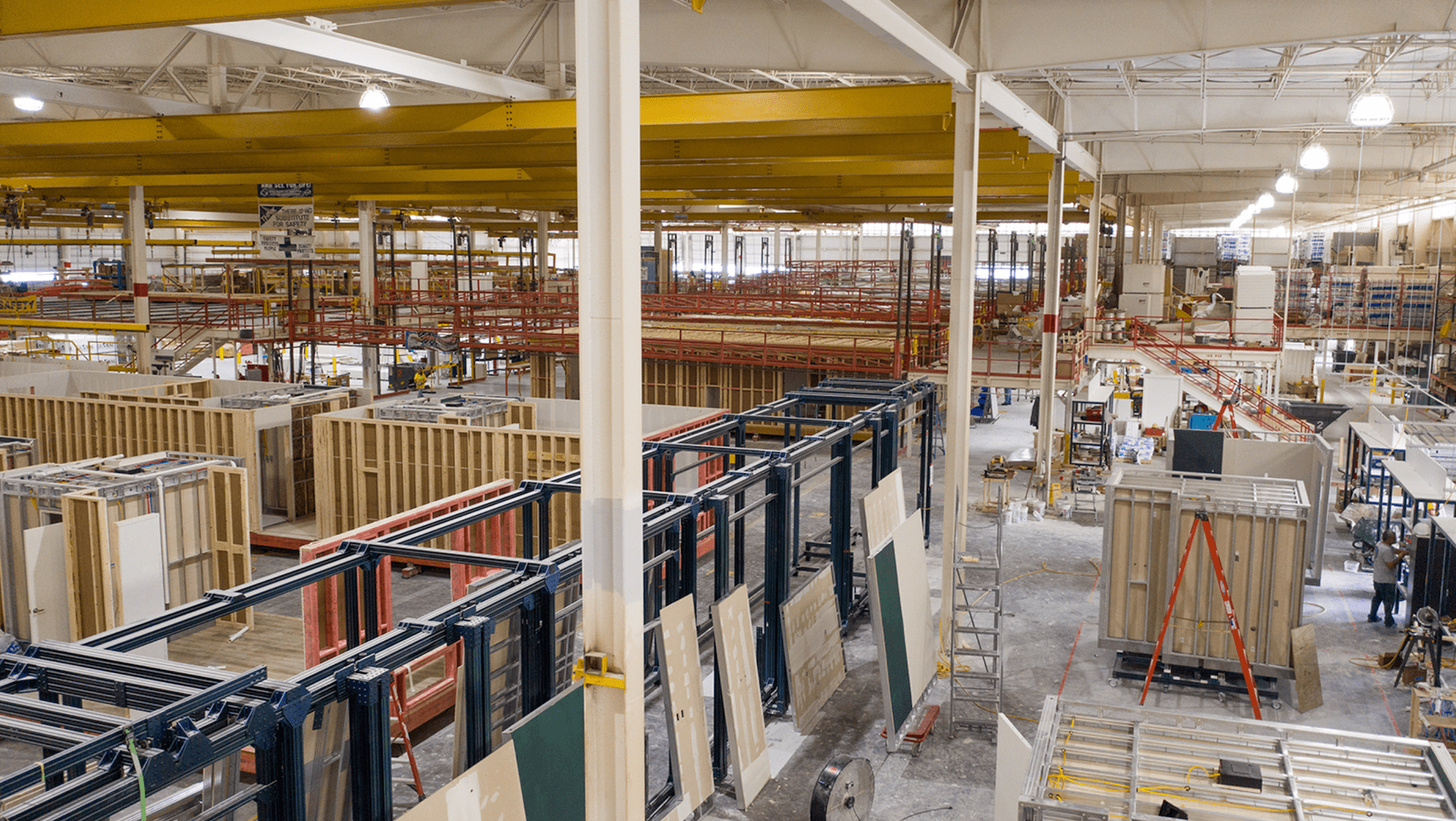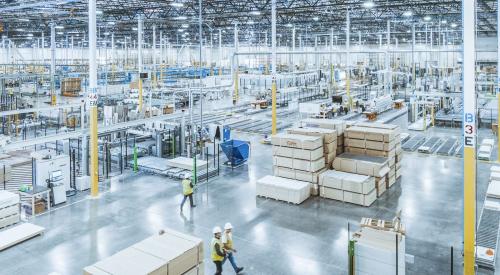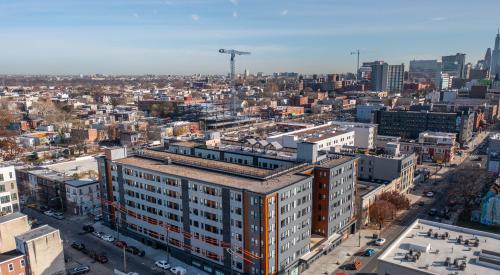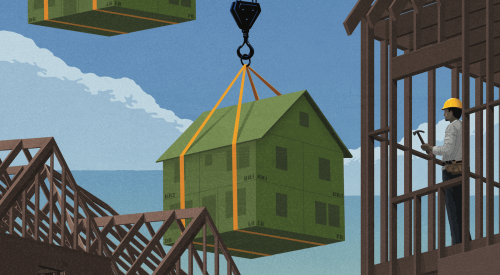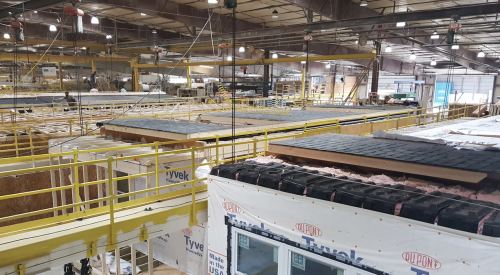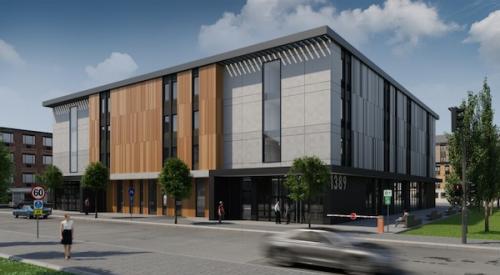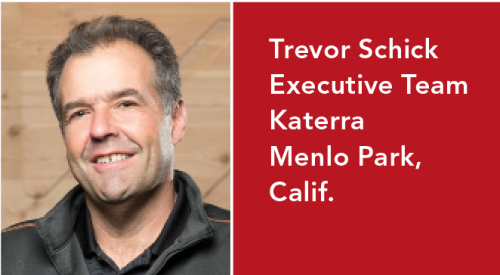Volumetric Building Companies (VBC) is in the final stages of a $25 million bankruptcy acquisition of Katerra’s former headquarters in Tracy, Calif.
The Philadelphia-based modular builder has been selected as the final bidder in a deal that ultimately will bring $60-million worth of manufacturing equipment that includes production lines for windows, cabinetry, trusses, and wall panels into the portfolio of the VBC | Manufacturing division, which builds modular units for multifamily housing projects. The purchase could close as early as Aug. 12.
“We’re seeing this as an opportunity for us to service our fellow modular factories around the country whether that is within the (Modular Mobilization Coalition) network that we created or outside with lower lead time, higher quality, and more conducive to modular manufacturing,” says Vaughan Buckley, VBC’s chief executive officer. “We understand the needs of modular manufacturers around the country, and if we can get their windows down from a 23-week lead time to a three-week lead time while maintaining cost and quality, think of what that can do for our partners right now that are really struggling to get product out.”
RELATED
- Exclusive Research: The Off-Site Argument
- On-Site vs. Off-Site: a Total Cost Analysis for Home Builders
- 3 Reasons Off-Site Construction Could Help Shape the Future of Housing
The Modular Mobilization Coalition is a network of modular companies, including VBC, that joined forces last year to design modular units to relieve hospital capacity strain early during the pandemic and then repurposed as an alternative housing solution. Katerra was founded in 2015 as a startup that brought design, manufacturing, and building construction under one roof, initially in a manufacturing facility in Phoenix, Ariz., which eventually was shuttered when the company opened the Tracy plant.
The startup was funded by deep pockets, including $2 billion from SoftBank and it once claimed to have $1.3 billion in bookings. However, underbidding, delays, and cost overruns plagued Katerra, which racked up $2.8 billion in losses in three years. About 8,000 employees lost their jobs when the company abruptly closed and filed for Chapter 11 protection from creditors in June 2021.
Now That Katerra Has Filed for Chapter 11, What's Next?
Modular and other off-site factory builders of prefabricated homes have long been fighting an uphill battle with a supply chain that is geared to serving stick frame building with products that install easier in the field than in the factory. For example, windows could have flanges or stops that make them and other components easier to weatherproof and install in a factory.
“We’re starting to get into a place where we can influence the outputs of building material manufacturers,” Buckley says. “Now if we can get our cabinet sizing and window sizing down to standardized sizing that works better for factory components, we can start to create change within the industry by reducing the number of SKUs while maintaining sort of a flexibility and customization that everyone wants to see while ultimately streamlining the outputs.”
Based on double-shift capacity (although the former Katerra lines ran on a single shift), the Tracy facility can produce approximately 20,000 cabinets and 10,000 windows per month and its capacity for trusses and wall panels is substantial.
VBC has secured $35 million in funding, which is being provided by a financial backer “who is supporting VBC growth and expansion without taking any control of our company,” Buckley says. He adds that VBC intends to reach out and hire some former Katerra employees and customers, some of whose projects were left stranded by the shutdown.
“Our biggest push with this facility is righting the wrongs and get to a place where we can take care of the employees who made a difference here. Katerra did an amazing job in opening people’s eyes to what was possible. Regardless of what you think about their execution or their business model, they were definitely ambitious, and they weren’t wrong in a lot of ways,” Buckley says.
RELATED
More Off-Site Builders Coming Online
Last month, another modular home builder, Impresa Modular of Martinsburg, W. Va., announced it would build its first production facility in the southeastern region to service Georgia and the Carolina markets and eventually Florida and Tennessee. The 200,000-square-foot plant would build select designs for Impresa Modular franchisees and for a limited group of builders and developers. The factory plans to employ more than 100 full-time employees and produce more than 20 complete modules per week.
“The southeast is an underserved and booming market for off-site modular construction. Developers and investors have finally discovered today’s modular construction, and Impresa can reduce the risk of conversion to a new way of project delivery,” says Ken Semler, Impresa CEO in a company release.
